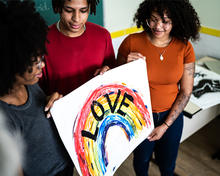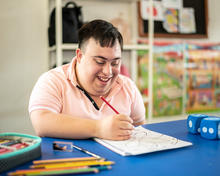What is Comprehensive Human Sexuality Education (CHSE)?
Comprehensive Human Sexuality Education is a research-based strategy that equips youth with promoting instruction that is rooted in and consistent with scientific evidence; corresponds content to the age level and development of young people; values lived experiences and different
cultural backgrounds and perspectives of young people, with a particular focus on those who have been traditionally excluded from sexual health education; and is driven by youth voice and leadership.
CHSE equips young people with information and skills across a broad range of topics including:
- anatomy,
- puberty and adolescent development
- healthy relationships and consent
- sexual orientation and gender identity
- reproduction and sexually transmitted infections
- safety.
It aims to support young people as they navigate sexual development and communicate about and make decisions around their sexual health.
History and Background of Sex Education
Sexual health education has traditionally been provided to K-12 youth with an abstinence-only approach, however, according to the Kaiser Family Foundation and the Columbia Mailman School of Public Health, comprehensive human sexuality education is proven to be a more effective approach in addressing, preventing, or reducing harmful/ negative youth health outcomes such as youth’s sexual health behavior with regards to reducing unintended pregnancy, STIs/HIV, delaying sexual activity, and meeting the needs of youth with marginalized backgrounds (Black, Indigenous, People of Color (BIPOC), LGBTQIA+, survivors of sexual assault and violence, immigrant identifying, those with disabilities, etc.). Colorado law states that if a school or district offers sex education then that education must be comprehensive and meet the requirements noted in Colorado Revised Statutes 25-44-101.
Since 2019, funding to implement Comprehensive Human Sexuality Education (CHSE) has been available to public schools, districts, and charter schools through the Colorado CHSE Grant Program.
Comprehensive human sexuality education components:
- Medically accurate: Verified and supported research conducted in compliance with scientific methods published in peer-reviewed journals and articles by professional organizations and agencies with expertise in sexual and reproductive health.
- Age appropriate: Sexuality education should employ standards and information that are researched, tested, and suitable for youth at a specific age as it relates to their human body development.
-
Culturally sensitive: Resources, references, and information used in sexuality education should be meaningful to the experiences and the needs of communities of color (Black, Indigenous, and People of Color), immigrant communities, lesbian, gay, bisexual, transgender, intersex, queer-questioning, and asexual communities (LGBTQIA+), people with physical or intellectual disabilities; people who have experienced sexual victimization; others whose experiences have traditionally been left out of sexual health education.
- Inclusive of a positive youth development approach: Strategies to strengthen youth’s sense of identity and belonging; belief in the future; self-regulation; self-efficacy; and social, emotional, cognitive, and behavioral competence.
- Non-shame-based: Avoid telling youth how they should behave as it relates to their sexual health decisions (type of partner(s), type of sex, when, where, how, etc.) due to one’s own values and beliefs.
- Non-stigmatizing: Avoid telling youth the sexual health decisions they make are wrong according to one’s own values and beliefs.
Impact of Comprehensive Human Sexuality Education (CHSE) in Colorado:
- Delayed onset of youth sexual activity.
- Informed decisions around the frequency and safe choices about sex.
- Reduced rates of STIs and HIV.
- Increase in condom and contraception use among youth who choose to be sexually active.
- Reduced risk of sexual assault in college.
- Lower reports of bullying amongst LGBTQ+ youth.
- Lower reports of depressive symptoms amongst youth including suicidal ideation.
- Improved youth social emotional learning.
- Improved youth healthy communication skills; media literacy.
Community Voices and Experiences with CHSE in Colorado
The following videos highlight community voices and experiences related to comprehensive sex education in Colorado. Hear directly from students, parents, teachers, administrators, and other experts. We hope that these can be a tool to support community conversations around CHSE, help provide information about what this education includes, and share more on how schools across Colorado can access resources for this work.
Bring CHSE to your community!
If you want to learn more about bringing CHSE into your school and/or district please talk with your local students, parents, teachers, nurses, and administration about the CHSE program and opportunities to apply for funding.
Mini-grants
Mini-grants of up to $10,000 are available annually to support initial planning and infrastructure development for CHSE. Applications are released each Spring.
Three-year grant funding
Three-year grant funding to support longer-term CHSE efforts with awards of up to $100,000 per year. These are released every three years with the next application expected to be opened in early 2026.
If you are interested in these funding opportunities and/or have any questions about the CHSE Grant Program in Colorado, please email us at cdphe_chse@state.co.us.

